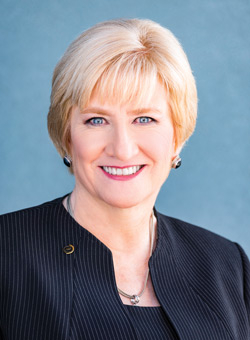The Centers for Medicare & Medicaid Services (CMS) announced on Nov. 1 that it would wait two years before implementing changes to its evaluation and management (E/M) codes that were opposed by the AMA, ISMA and other health professionals. The news came as CMS published its final 2019 physician fee schedule (PFS) and Quality Payment Program (QPP) rule, summarized by the AMA
here.
The proposed changes to the 2019 physician fee schedule (PFS) and Quality Payment Program (QPP) rule would have collapsed E/M office/outpatient visit levels 2 through 4 for new and established patient visits to two codes, while maintaining the payment rate for E/M office/outpatient visit level 5. The proposed rule also would have allowed practitioners to choose to document E/M office/outpatient level 2 through 5 visits using medical decision-making or time instead of applying the current 1995 or 1997 E/M documentation guidelines; alternatively, under the proposed rule, practitioners could continue using the current framework. These changes have all been postponed until Jan. 1, 2021.
 |
Barbara McAneny, MD
AMA President |
In a Nov. 2 statement to stakeholders, AMA President Barbara McAneny, MD, expressed gratitude to CMS for delaying the E/M changes.
“The AMA is grateful that the administration is not moving forward in 2019 with the payment collapse of E/M codes,” Dr. McAneny said. “A two-year window for implementation of the proposal will give the AMA-convened work group – comprising physicians and other health professionals – time to make recommendations on this complicated topic.
The panel members have deep expertise in defining and valuing codes, and, as members of various specialties, they all use the office visit codes to describe and bill for services provided to Medicare patients. The group is analyzing these issues and plans to offer solutions to be provided to CMS for future implementation. We look forward to further dialogue with the administration on the work group’s proposal.”
Dr. McAneny also thanked CMS for reforms in the 2019 final rule that will reduce administrative burdens for physicians. The rule takes effect Jan. 1, 2019.
“With physicians facing excessive documentation requirements in their practices, it is a relief to see that the administration not only understands the problem of regulatory burden but is taking concrete steps to address it,” she said. “Patients are likely to see the effect, as their physicians will have more time to spend with them and be able to more quickly locate relevant information in medical records.
“Specifically, the AMA is grateful that CMS:
- Changed the required documentation of the patient’s history to focus only on the interval history since the previous visit.
- Eliminated the requirement for physicians to re-document information that has already been documented in the patient’s record by practice staff or by the patient.
- Removed the need to justify providing a home visit instead of an office visit.
- Declined to move forward on a proposal to reduce payment for office visits when performed on the same day as another service.”
“Implementation of these policies will streamline documentation requirements, reducing paperwork burdens that interfere with a meaningful patient-physician relationship,” Dr. McAneny said.
To read the AMA’s analysis of the 2019 rule changes originally proposed by CMS, go to
www.ismanet.org/CMSruleanalysis.
Information about the AMA’s opposition to the proposed E/M code changes can be found at
www.ismanet.org/EMopposition.
Healthcare Finance has more detailed coverage of the 2019 PFS and QPP final rule at
www.ismanet.org/HFfinalrule.
| ISMA member makes voice heard on E/M changes |
When CMS sought feedback on changes proposed in its draft 2019 physician fee schedule, ISMA member Robert S. Flint, MD, PhD, answered the call.
In an online comment to CMS, Dr. Flint, president of the Indiana Neurological Society, expressed the society’s concern that the draft rule’s reduction in new and follow-up outpatient billing levels could penalize some specialties and the care of patients with complex conditions.
Speaking for himself, Dr. Flint proposed changes similar to those outlined in his ISMA Resolution 18-60, which was adopted at this year’s convention. The proposals in CMS’ 2019 final rule closely resemble Dr. Flint’s suggestions.
Dr. Flint encourages other physicians to submit comments on regulatory proposals. “The more voices added to the chorus, the more likely the words will be heard,” he said. “This is why no one should hesitate to express their convictions. Every individual has the potential to effect change.”
Read Dr. Flint’s comment online at www.ismanet.org/FlintCMS.
Resolution 18-60 is at www.ismanet.org/pdf/convention/2018ACTIONS.pdf. |